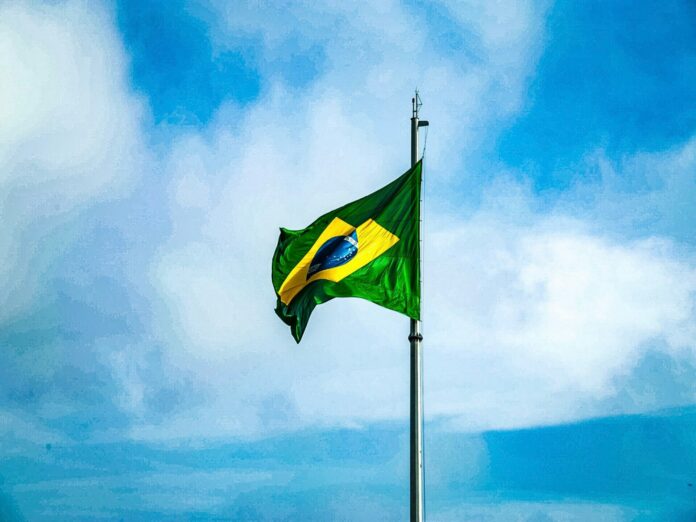A Brief History of Football Agent Regulation in Brazil
The regulation of the football agent profession in Brazil has long been characterized by provisional measures and informality. Following the abolition of the “FIFA Agent” designation in 2015, the industry was left largely unregulated. To fill this gap, the Brazilian Football Confederation (CBF) implemented its own registration system with minimal requirements—moral integrity, a clean criminal record, and the submission of liability insurance coverage.
However, this system was fragile and allowed for a fragmented and often uncontrolled practice. In 2023, with the implementation of the FIFA Football Agent Regulations (FFAR), FIFA required all national federations to adopt regulations consistent with its global standards. In response, the CBF enacted its National Football Agent Regulations (RNAF), aligned with the FFAR.
However, this system was fragile and allowed for a fragmented and often uncontrolled practice. In 2023, with the implementation of the FIFA Football Agent Regulations (FFAR), FIFA required all national federations to adopt regulations consistent with its global standards. In response, the CBF enacted its National Football Agent Regulations (RNAF), aligned with the FFAR.
Simultaneously, Brazil enacted the new General Sports Law (Federal Law No. 14.597/2023), which formally recognized the career of the sports agent. However, it did so without fully incorporating FFAR criteria, which left room for civil service agreements—particularly legal service contracts—to be used as a workaround to regulatory requirements, a practice that had already become widespread in Brazil.
The Sports Agent under Brazil’s General Sports Law
Article 95 of the General Sports Law defines the sports agent as a natural or legal person engaged in the intermediation of sports contracts and the management of athletes’ careers. According to §2 of that article, this activity is subject to the rules established by sports governing bodies and the international legislation of their respective federations.
This statutory provision explicitly recognizes the CBF’s regulatory authority over football agents, thereby granting legitimacy to its National Agent Regulations, developed in line with the FFAR.
The Legal Exception
An important exception is introduced in §1 of Article 95, which allows first-degree relatives, spouses, and lawyers of an athlete—if expressly authorized—to act as intermediaries or career managers without holding a license from either the national governing body or the international federation.
This legal carve-out creates a formal exception to licensing requirements and can be interpreted as a protective measure for athletes, particularly at the early stages of their careers.
The Lawsuit Filed by ABAF (Case No. 0838927-49.2023.8.19.0209)
The Brazilian Association of Football Agents (ABAF) filed a lawsuit against the CBF and FIFA challenging the validity and enforceability of the RNAF and FFAR.
ABAF argues that these regulations impose excessive restrictions on professional freedom and entrepreneurial initiative, thereby violating constitutional principles and infringing on economic freedom and antitrust laws (Law No. 13.874/2019 and Law No. 12.529/2011).
On December 18, 2023, the 7th Civil Court of the Barra da Tijuca Judicial District in Rio de Janeiro granted a preliminary injunction suspending the application of both regulations. The court held, at the preliminary stage, that the imposition of rules by private entities on unaffiliated professionals could violate constitutional principles such as professional freedom and private enterprise.
Critical Analysis
Although the preliminary decision raises valid concerns regarding economic freedom, it is essential to note that Article 95, §2 of the General Sports Law expressly legitimizes the CBF’s role in regulating the profession of sports agent. By referencing the rules of sports governing bodies, the federal legislation clearly allows for regulation by the CBF and FIFA.
Thus, the legal foundation of ABAF’s challenge appears to be weakened when weighed against the express statutory authority granted to these entities. The exception provided in §1 should be interpreted narrowly, as a protective mechanism rather than a loophole to circumvent formal regulation.
Conclusion
Article 95 of Brazil’s General Sports Law establishes a normative framework that recognizes the regulatory authority of the CBF and FIFA over sports agents. The exception under §1 does not invalidate the legitimacy of the CBF and FIFA regulations contested by ABAF. Therefore, under current Brazilian law, these regulations stand on firm legal ground. While ABAF’s arguments are relevant from an economic rights perspective, they hold limited sway against the explicit authorization provided in the federal sports legislation.
The current state of sports intermediation in Brazil remains a fragmented environment. Many agents operate under civil or legal services contracts without any formal registration or institutional protection within the CBF/FIFA system. Others have not pursued international certification due to language, financial, or logistical barriers.
While FFAR aims to establish a global standard, its application in Brazil demands local adaptation, alignment with domestic laws, and pragmatic solutions. Until then, the system remains in limbo, caught between a drive for formalization and a tradition of informality.
Sources:
• https://www.conjur.com.br/wp-content/uploads/2024/01/Decisao-37-1.pdf
• https://www.conjur.com.br/2024-jan-09/cbf-e-impedida-de-aplicar-regras-para-agentes-de-futebol-no-brasil/
• https://leiemcampo.com.br/empresarios-entram-com-acao-na-justica-contra-a-cbf-pedindo-anulacao-do-regulamento-nacional-de-agentes-de-futebol/
• https://www.espn.com.br/futebol/artigo/_/id/13008773/justica-concede-liminar-a-empresarios-e-suspende-regulamento-de-agentes-da-cbf

